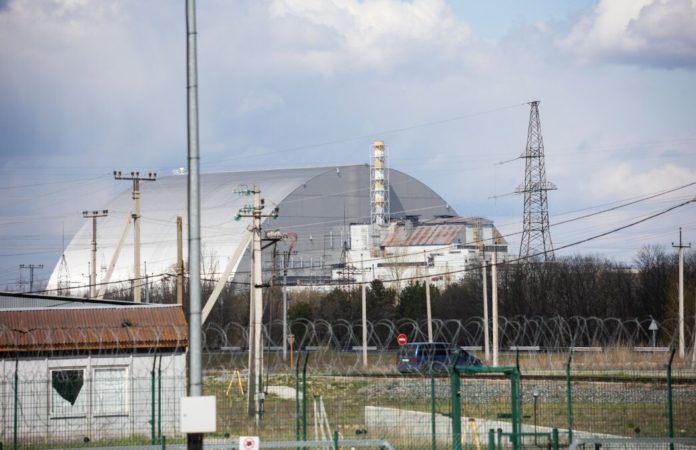Ukrainian authorities said Thursday that Russian invasion forces had taken the abandoned Chernobyl nuclear power plant, the scene of a 1986 disaster that rocked the region.
Our defenders are giving their lives so that the tragedy of 1986 will not be repeated,” Zelensky said earlier on Twitter, announcing that fighting over the area had begun. “This is a declaration of war against the whole of Europe.”
The Ukrainian Foreign Ministry, recalling the catastrophe that ranks as the world’s worst nuclear power plant accident, said the Russian attack “may cause another ecological disaster.” If the war continues, it said, Chernobyl “can happen again in 2022.”
“State Nuclear Regulatory Inspectorate informs that the Chornobyl NPP is fully controlled by [Russian forces], including all installations and repositories,” Demchenkov Yaroslav, Ukraine’s deputy energy minister, tweeted Thursday, on an account that could not immediately be verified.
There was no immediate way to confirm what Russian forces are doing in the zone, located about 80 miles north of Kyiv and just 12 miles from the border with Belarus. Russia massed forces in Belarus in the weeks leading up to Thursday’s attack on Ukraine.
In April 1986, core explosions and fires broke out at the Chernobyl plant, then under the control of the Soviet Union. Two workers died from the explosions. Large quantities of radioactive material contaminated the surrounding land, and a nearby city had to be evacuated. Vast swaths of Europe were affected, and a radioactive cloud spread as far away as Norway.
A United Nations report found that 134 first responders were diagnosed with acute radiation syndrome after the accident. Twenty-eight of them died within four months, and 19 more died over the next two decades. Acute radiation syndrome can damage bone marrow, suppress a patient’s immune system and cause intestinal problems, among other effects. There were no cases among the general population living in towns around the power plant.
In the decades since the accident, studies showed that radiation from the Chernobyl accident led to thyroid conditions, particularly in children, as well as cancer. The U.N. estimated that at least 4,000 may have died as a result of exposure to radiation.
The Chernobyl zone, one of the most radioactively contaminated places in the world, has remained closed since 1986, though a small number of people still live there – mostly elderly Ukrainians who refused to evacuate or who quietly resettled there later.
A concrete shelter was built in 1986 to prevent the release of about 220 tons of highly radioactive material. A new and safer structure was completed over the site in 2017 and operation was handed over to Ukrainian authorities in 2020. The structure is “strong enough to withstand a tornado,” according to the European Bank for Reconstruction and Development. It was designed to last at least 100 years and built to withstand temperatures ranging between -45 degrees and 113 degrees Fahrenheit.
Staff at the Chernobyl site have been operating at reduced capacity this month due to a coronavirus outbreak among employees.
A Ukrainian Interior Ministry adviser Anton Gerashchenko said Russian forces invading from Belarus were battling Ukrainian national guardsmen, who were “fighting hard” to protect storage facilities for “unsafe nuclear radioactive waste.”
His account could not immediately be confirmed.
If artillery hits the facilities, “radioactive nuclear dust can be spread over the territory of Ukraine, Belarus” and European Union countries, he warned.
For Russia, the site may hold particular significance, since the accident there 36 years ago led to social changes and new cooperation with the West that transformed the Soviet Union.
Former Soviet president Mikhail Gorbachev later suggested that the Chernobyl disaster was “perhaps the real cause of the collapse of the Soviet Union” – more so than his liberalizing reforms.
(c) 2022, The Washington Post · William Branigin, David L. Stern, Claire Parker






